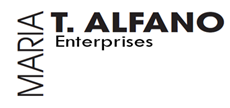 The news lately focused on what the scope is of the employee’s right to privacy in their workplaces and has highlighted by the fact that more employees that was terminated for making privacy claims. The case that made headlines was the termination of radio personality Jian Ghomeshi by CBC.
The news lately focused on what the scope is of the employee’s right to privacy in their workplaces and has highlighted by the fact that more employees that was terminated for making privacy claims. The case that made headlines was the termination of radio personality Jian Ghomeshi by CBC.
While it is generally understood that employees are legally entitled to various degrees of privacy while at work through existing privacy laws, is must be balanced with the right to manage their tasks efficiently and effectively. However employers are at greater risks to have crucial information being shared that could affect their profitability and operations.
Canada has federal and provincial legislation in place to govern the ability of the employer to collect and use personal information of their employees. The term personal information is very broadly defined as any personal information about an individual employee. Canada is federally regulated and workers in the private sector are protected by the Personal Information Protection and Electronic Documents Act (PIPEDA). Provinces such as British Columbia, Alberta and Quebec also have specific regulation for privacy in place protecting all regulated provincial employers in the private sector. These laws require the employer to obtain permission from the employee before collecting, using or disclosing any personal information. It is also specified that the information is required for the establishment, management or termination of an employment relationship between employer and employee.
Courts are in the process of defining the scope of the employee’s right to privacy and recognize the common law tort for breach of privacy as was the case in Jones v Tsige in the Ontario Court of Appeal. The court found that the liability for invasion of privacy exists when the intrusion is intentional, is unlawful invasion of private affairs, cause stress, humiliation and anguish to the employee and is finally viewed as offensive to their reasonable peers.
To justify any monitoring or surveillance of the company employees to obtain, collect and disclose personal information, it should be for legitimate operational concerns such as the safety of fellow workers and the assets of the employer. To make the collection of personal information comply with the legal definition the employer must consider that the use of this information is required to meet the needs of the organization, the invasion is reasonable and whether any other less intrusive options could be used.
Employers should set policies or develop policies that enforce collection, using and disclosing of personal information to avoid complaints, actions and potential grievances when the employees perceived these actions as a breach of their personal privacy. Policies should contain the rules regarding use of electronic equipment, access to the internet and social media to disclose information regarding the operations and fellow workers. It should also disclose how personal information is collected, used and retained for later use. Therefore the purpose of collecting information about the employee is clear and explained to avoid future disputes.
To conclude this, the employer must ensure that all employees are aware of the privacy policy and should request written agreements acknowledging the policy. Effective and well written policies will reduce the potential liability for the employers and understanding of the employees regarding their rights to privacy in the workplace.
Helping you understand what’s in your pocket…
Until next time.

Let us know what you think